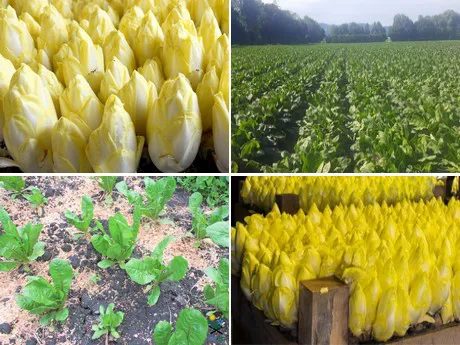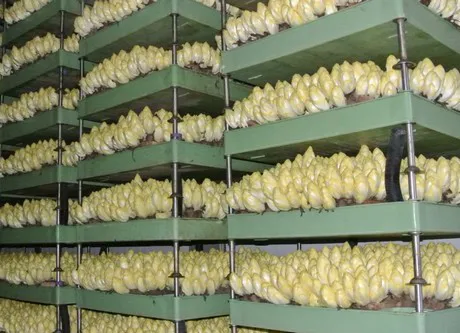The taste is of course still the most important to the consumer. In general, the tendency in society is towards sweet rather than bitter. In addition to this, there are now also some successful competitors who are more in the customer’s eye, says Theo Münch, a chicory specialist from Gelsdorf. But it also has to do partly with the ignorance. “Here in Germany, chicory is immediately associated with salads. However, you only get the typical bitter taste when you cook this vegetable. The older generation still has quite a rich taste, but to get the younger generation involved will, in my view, be very difficult.”

Restriction
He cites as an example the Belgians, who have tried to increase the enthusiasm for chicory with advertising campaigns, but without success. However, the average per capita consumption in neighbouring countries, at four to five kilograms, is considerably higher than the 300 grams consumed annually in Germany. Münch: “An additional problem is that chicory does not keep very well when cut. This makes it difficult to get the product into the fast food chains.”
Today, the chicory association has only 14 farmers who are completely focused on chicory cultivation. How different it was in the past, when chicory was unknown in western Germany, but was grown in large quantities in the former GDR to meet the production quota for winter vegetables. Münch: “At that time there were about 20 large companies, of which only two are left today. During the restructuring, they have slowly disappeared. In 1995 there were still about five growers. Of the thirteen farmers who started using chicory in my area at the time, I'm the only one who's still working with it.”

Hope
Despite the constant narrowing down of the chicory sector, the current market situation is anything but bad. The current cultivation prices are 0.90 euros per kg, about 0.10 euros higher than last year. Compared to the years before, the price difference is even more in the range of 0.20 euros. “If competing products are expensive, chicory prices also rise. On top of that, Spain and Italy had to deal with fairly heavy frost last year, but we were able to deliver reasonably well. Currently, in Italy, there are problems with the weather again. As far as our produce goes, quality is there without fail.”
Not only the lack of interest from the consumer is problematic, but there is the costly cultivation as well. This is because the roots will only grow into a delicious product in so-called darkrooms. “This two-part process will not make it possible to produce chicory quickly. Only after a year’s preliminary actions, through selection and cultivation can one actually reap the products in the fall.”
Specialisation
Since 1989 Theo Münch has been specialising entirely on chicory. At that time, the expert started with 3 hectares on behalf of the regional central market. Since 2003 he has a modern hall with darkrooms. Here not only self-grown chicory roots grow, but also plants received from partner companies. Its current acreage is approximately 40 hectares. Apart from the year-round breeding of chicory, Münch also deals with rhubarb and arable farming.
For more information:
